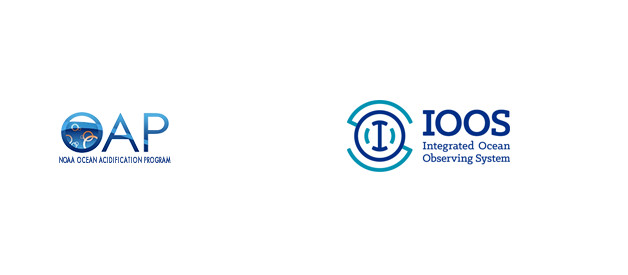Ocean Acidification
The ocean chemistry of the seawater is rapidly changing in a process known as ocean acidification. These changes in seawater chemistry affect animal growth, survival and behavior, and they are depleting the ocean of calcium carbonate, a nutrient vital for shellfish to build shells. Marine organisms with calcium carbonate shells or skeletons – such as corals, oysters, clams, and mussels – can be affected by small changes in acidity. That's important, because shelled organisms are essential throughout the marine food chain. They are also vital to our economy, as shellfish hatcheries on the brink of collapse just a few years ago, struggle to adapt.
For more information about ocean acidification, please visit NOAA’s Ocean Acidification Program (OAP).
IOOS’ Ocean Technology Transition program, in collaboration with NOAA OAP, has supported the projects to improve ocean acidification observations and research:
FY13
Pacific Ocean Acidification Project
FY14
FY15
Tracking Ocean Alkalinity using New Carbon Measurement Technologies (TAACT)
FY20
Technology Transfer of a Surface pCO2 Flux Instrument for Autonomous Platform Applications
For more information about IOOS’ Ocean Technology Transition program, please contact Tiffany Vance, Program Manager.
 Official websites use .gov
A .gov website belongs to an official government organization in the United States.
Official websites use .gov
A .gov website belongs to an official government organization in the United States.
 Secure .gov websites use HTTPS
A lock or https:// means you’ve safely connected to the .gov website. Share sensitive information only on official, secure websites.
Secure .gov websites use HTTPS
A lock or https:// means you’ve safely connected to the .gov website. Share sensitive information only on official, secure websites.

